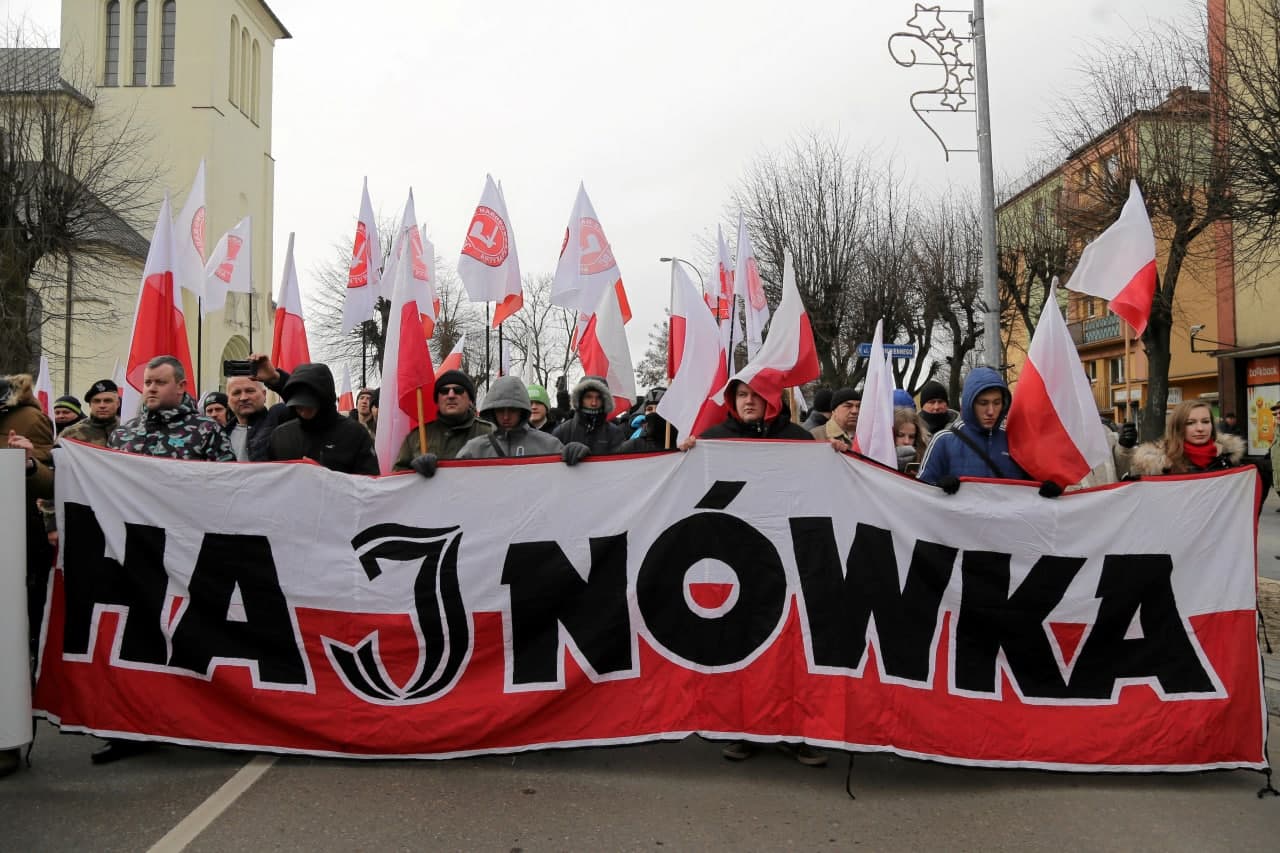Polish threat and Russian guarantees as seen by Russian propagandists

Protests in Belarus / Reuters
Support independent journalism. Join Patreon.
Russian propaganda is trying to make sense of the protests in Belarus. At the same time it is scaring people with the "imperialist ambitions" of Poland, which allegedly wants the "Kresy" back, and the total dependence of "Belarusian stability" on Russia. What are the propagandists dreaming about? Euroradio is trying to figure out their dreams for you.
Russia as the last and only guarantor of "Belarusian stability"
Nowadays, almost the top narrative of pro-Russian propaganda directed at Belarus is "we are your last salvation." Russian resources do not hide the fact that Lukashenka was only able to maintain his position thanks to Moscow, which did not support the protests.
Vsevolod Shimov, a political analyst and expert in Russian studies argues in his text "Will the Protests in Belarus Recur?" that it was Russia's external intervention that played a major role in the fact that "this round of political struggle was won by the current Belarusian authorities". The situation stabilized after the support of the incumbent Belarusian authorities was announced in Moscow, and the West limited itself to rather symbolic help to the protesters.
But in the near future this overall favorable situation for Lukashenka may change, says Shimov. First of all, because the U.S. Democrats pursue a more active policy in the post-Soviet space:
"If Washington begins to play an anti-Russian card, destabilization of the nearest geopolitical environment, including Belarus, will become one of the main directions of this policy. All sorts of sanctions could fall on Minsk like they would from the horn of plenty. If this happens, the key to the economic stability of Belarus will be completely in the hands of Russia.
But the Kremlin may simply not have the time or ability to help Lukashenka if Russia gets involved in a new confrontation with the West. It turns out that Russia is not the best "guarantor of stability" there is.

"Thus, the foreign policy background looks very worrying for the Belarusian regime, and if the actions of external players lead to economic destabilization, the whole system could crumble like a house of cards," Shimov concludes.
Kirill Ozimko promotes a similar idea in his article "Plan for victory. On the tactics of the Belarusian opposition in 2021".
His idea is simple: as long as Belarus is "under the wing of the Russian Federation," the Belarusians have nothing to worry about. Well, except for the fact that Belarus will increasingly depend on Russia:
"Under Biden's rule, the West may substantially increase the sanction-based economic pressure on the republic, making its domestic political position even more dependent on Russia. And, in principle, it is Russia that ensures the stability of Belarus -- both economically and in terms of security.
However, Ozimko does not say what will happen if the pressure of economic sanctions falls on Russia, which is already in an unenviable position because of the attempt to kill Navalny.
Polish imperialism "strikes back"
Together with the stories about Russia being the last defense for Lukashenka, Russia promotes the idea of "Polish imperialism". These stories appeared even prior to the election, Euroradio wrote about them before.

According to Kiseliov, the Polish authorities believe that only Belarusian Catholics are the true Poles.
The idea that the armies of the countries surrounding Belarus are incapable either of attacking or defending is an idea promoted together with the story of Poland's "imperialist ambitions".
Military observer Aleksandr Hrolenko cites the results of the military exercise "Winter 2020" in Poland, where a virtual enemy defeated the Polish army in just five days.
Hrolenko explains that computer simulation of the war on Poland's eastern border showed that on the fourth day Warsaw was surrounded, strategic ports were blocked or occupied, aviation and the navy ceased to exist despite NATO support.
And here we have a kind of Schrödinger attack threat: Poland, according to propagandists, thinks about capturing the western territories of Belarus and at the same time realizes its own military incompetence. Quite a paradox, we'd say.



















